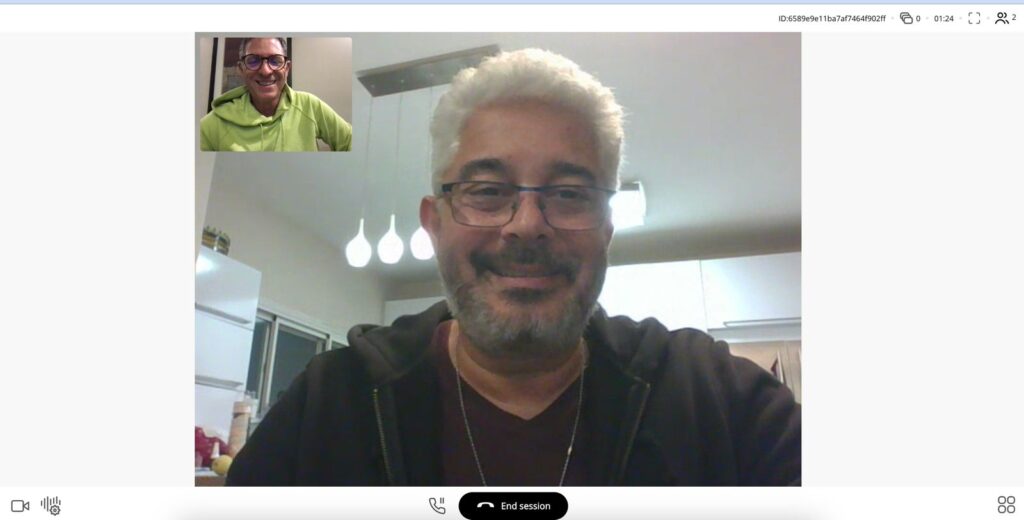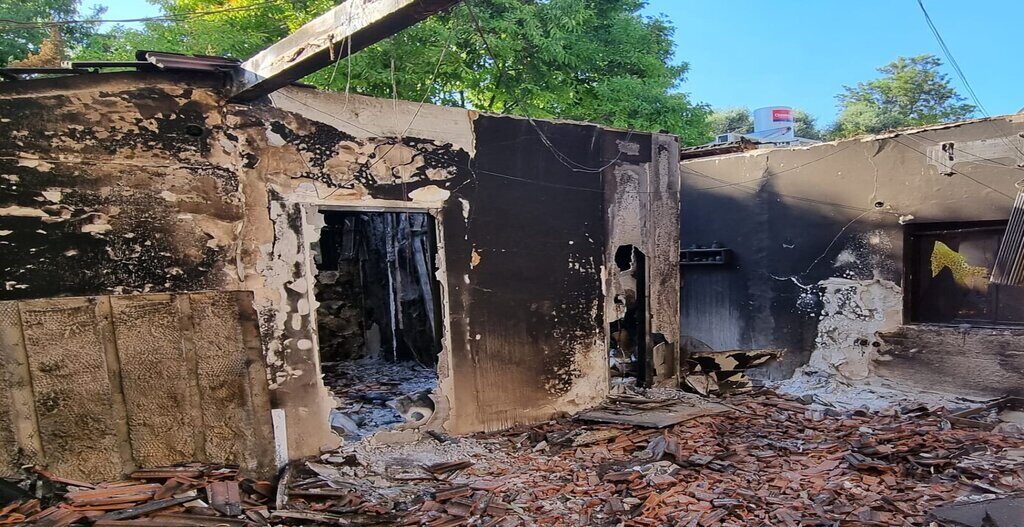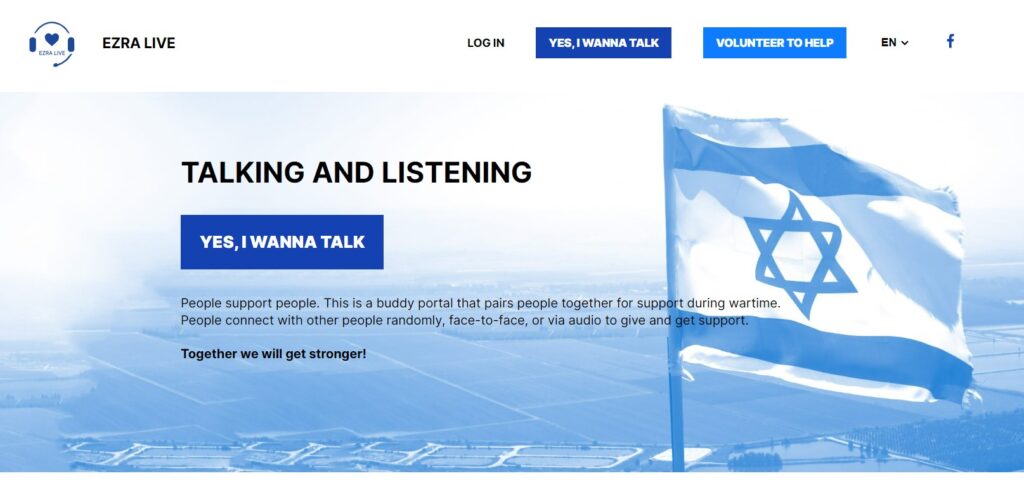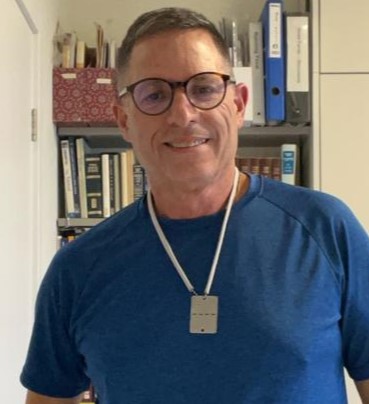Many Israelis have been struggling with their mental health since October 7, when the Hamas terror group sent thousands of rockets into Israel from Gaza and embarked on a rampage of murder, rape and mutilation that triggered a months-long war.
Israel’s state and non-governmental mental health organizations are cognizant of the issue, and campaigns and programs for mental health awareness have been prominently featured in the media.
One of those non-governmental projects is Ezra Live, a digital platform created post-October 7, which connects people wishing to talk by video or audio to someone wishing to listen.

The past three months have been a massive challenge for Israelis. Hamas has kept up the rocket fire on the civilian population, which is still coming to terms with the attack on the Jewish holiday of Simchat Torah that left 1,200 people dead, thousands wounded and hundreds more taken hostage in Gaza.
Hundreds of thousands of Israeli reservist soldiers have also been called to service under emergency Order 8, many to fight inside Gaza where their families at home cannot contact them for long periods at a time.
And the toll on the emotional well being of the population is marked. A recent study by Israeli and American researchers found that the number of adults in the country – both Jewish and Arab – suffering from PTSD almost doubled following the attack to 29.8 percent. It also found that 42.7 percent of Israelis were experiencing generalized anxiety disorder (GAD) and 44.8 percent were suffering from depression.
In comparison, 7.5 percent of New Yorkers experienced symptoms of PTSD following the September 11, 2001 attacks on the World Trade Center.

Ezra Live is the brainchild of Israeli entrepreneur Yuval Moed, CEO of the Tel Aviv and Michigan-based Eazyshow company that created an AI-integrated video chat platform for the financial sector.
After the terrible events of October 7, he realized that the video chat capabilities could be used to help alleviate some of the symptoms of the trauma experienced by Israelis.
Moed tells NoCamels that his first instinct on October 7 was to try to help in the best way he could. Indeed, Ezra is the Hebrew word for “help.”
Through talking to experts in the field of emotional support, he understood that sometimes people undergoing trauma simply need someone to listen – and that his own company, with its basis in human engagement, could be jury-rigged to become a solution.
“We came up with a bunch of guys in the industry who understand [engagement] and said let’s try to take the infrastructure, the video engagement infrastructure that we have and create a solution where we could help people with their emotional needs,” he says.
Moed and his group of high-tech experts then created the Ezra Live website, where those seeking solace simply click a button labeled “Yes, I wanna talk” and are connected to a volunteer waiting to listen and offer comfort.
“What happened on October 7 generated a huge trauma that I don’t think has been experienced within our country and the Western world since the Holocaust,” Moed says. “Such atrocities.”
Sign up for our free weekly newsletter
Subscribe
The technology is a web-based solution built on the Eazyshow platform, Moed explains, and is one that has the ability to place and receive calls online – via computer, Android mobile devices and iPhones.
Eazyshow’s app has also been made available to the volunteers, to make it easier for them to take calls, wherever they are. People wishing to volunteer can also offer their services on the same landing page, via an adjacent button.
The volunteers were recruited by Moed mainly via WhatsApp and other networks, and at present there are several dozen who are ready to listen when someone calls.
“We got an unbelievable response,” Moed recalls, “so many people are interested in becoming volunteers.”
Before they begin to answer calls, each of the volunteers is given instruction by the mental health professionals enlisted by Moed, and it is impressed upon them the importance of abiding by the commitment they have made.
The website is available in Hebrew, English and Russian. An Arabic version, Moed says, is coming soon.

The languages other than Hebrew – in particular English – were added when the creators of the site realized that not only Israelis were affected by the brutal mass terror attack and the ensuing war.
The events in Israel were also causing trauma among Jewish communities in other countries – especially in the West, which is experiencing some of the worst antisemitism since the Holocaust.
Moed says he has since reached out to Chabad, the Hasidic movement that has outposts all across the globe; the Jewish Federations of North America, the umbrella group for local communities in the United States; and Hillel, the worldwide Jewish campus organization, to discuss embedding the Ezra Live talk button into their respective websites.
“They understand that that could be very helpful for them, to interact with students and other people that need some support,” he says.
With the project still in its infancy, Moed says it is crucial to spread the word about the service in order to help the maximum number of Israelis – and others – whose mental health is suffering due to the war.
He repeatedly stresses that the service is not staffed by professionals, although he believes that can be a good thing.
“Sometimes people at a certain point just need to vent and they need to talk to somebody,” he says. “And a friendly conversation could make the whole difference.”
Related posts

Editors’ & Readers’ Choice: 10 Favorite NoCamels Articles

Forward Facing: What Does The Future Hold For Israeli High-Tech?

Impact Innovation: Israeli Startups That Could Shape Our Future




Facebook comments